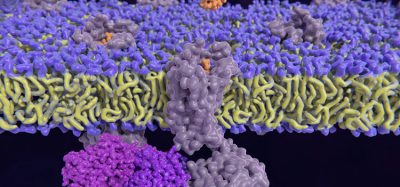The Pistoia Alliance: key findings on AI
Posted: 1 October 2024 | Drug Target Review | No comments yet
Results from Pistoia Alliance’s Lab of the Future survey has shared important findings about the challenges life science companies face.

The results from The Pistoia Alliance’s Lab of the Future survey, conducted in partnership with the Open Pharma Research, has revealed key information about the use of Artificial Intelligence (AI) and Machine Learning (ML), as well as investment trends.
The Pistoia Alliance, conceived in 2007, is a global, not-for-profit members’ organisation consisting of life science companies, technology and service providers, publishers and academic groups endeavouring to reduce barriers to innovation in life science and healthcare R&D. Their survey of 200 experts across Europe, the Americas and APAC, will be presented at the Lab of the Future Congress in Amsterdam on October 1 and October 2, 2024.
Importantly, 68 percent of respondents are using AI and ML in their work, having increased from 54 percent last year. Also, AI and ML are cited as the top tech investments planned over the next two years (62 percent). Simultaneously, companies will reduce their focus on infrastructure investments like Cloud Platforms (37 percent), LIMs (20 percent) and ELNs (23 percent).
Content-related barriers
Difficulties in using experimental data are moving towards more content-related issues, such as the inability to access data (59 percent), unstructured data (54 percent) and lack of metadata standardisation (48 percent). Only 35 percent said there were cultural barriers and institutional resistance to data sharing, which had reduced from 48 percent last year.
Dr Becky Upton, President at The Pistoia Alliance, commented: “The good news is that cultural barriers to AI adoption are falling as organisations realise the benefits of the technology for accelerating scientific innovation. But the survey shows a sizeable number of respondents are still facing data issues, and fresh concerns are arising around privacy and security, perhaps due to the ambiguities surrounding new legislation including the EU AI Act.”
The number one barrier to AI implementation was cited as low quality and poorly curated datasets (52 percent). The second highest barrier is data that does not adhere to Findable, Accessible, Interoperable, Reusable (FAIR) principles, at 38 percent. Furthermore, in 2023, privacy and security concerns about data were 38 percent, which have raised to 41 percent this year.
Financial barriers
Zahid Tharia, Pistoia Alliance Consultant and a Director of Open Pharma Research shared encouraging news: “There has been an increase in respondents citing financial barriers to AI/ML adoption, from 14 percent in 2023 to 20 percent in 2024. Yet we can see that most organisations are still planning to invest in AI, which is a positive sign for R&D overall.”
Future requirements
Respondents (49 percent) highlighted the need for more data governance frameworks, templates for standardisation and metadata (46 percent) and best practice guides and ‘how-to’s’ (45 percent), to make data FAIR at scale and combat content-related issues.
Notably, there has been an increase of the number of respondents interested in the practical use of ontologies. 51 percent of respondents identified more maintenance and management of data standards and ontologies as an essential tool to make data FAIR; a nine percent increase from last year.
Dr Upton concluded: “The Alliance’s forum and legal framework for pre-competitive collaboration and knowledge sharing is more important than ever for moving the industry forwards. We thank our members for their commitment to creating projects, resources and communities to support safe and effective AI use in the life sciences.”
Related topics
Artificial Intelligence, Informatics, Machine learning
Related organisations
The Pistoia Alliance







